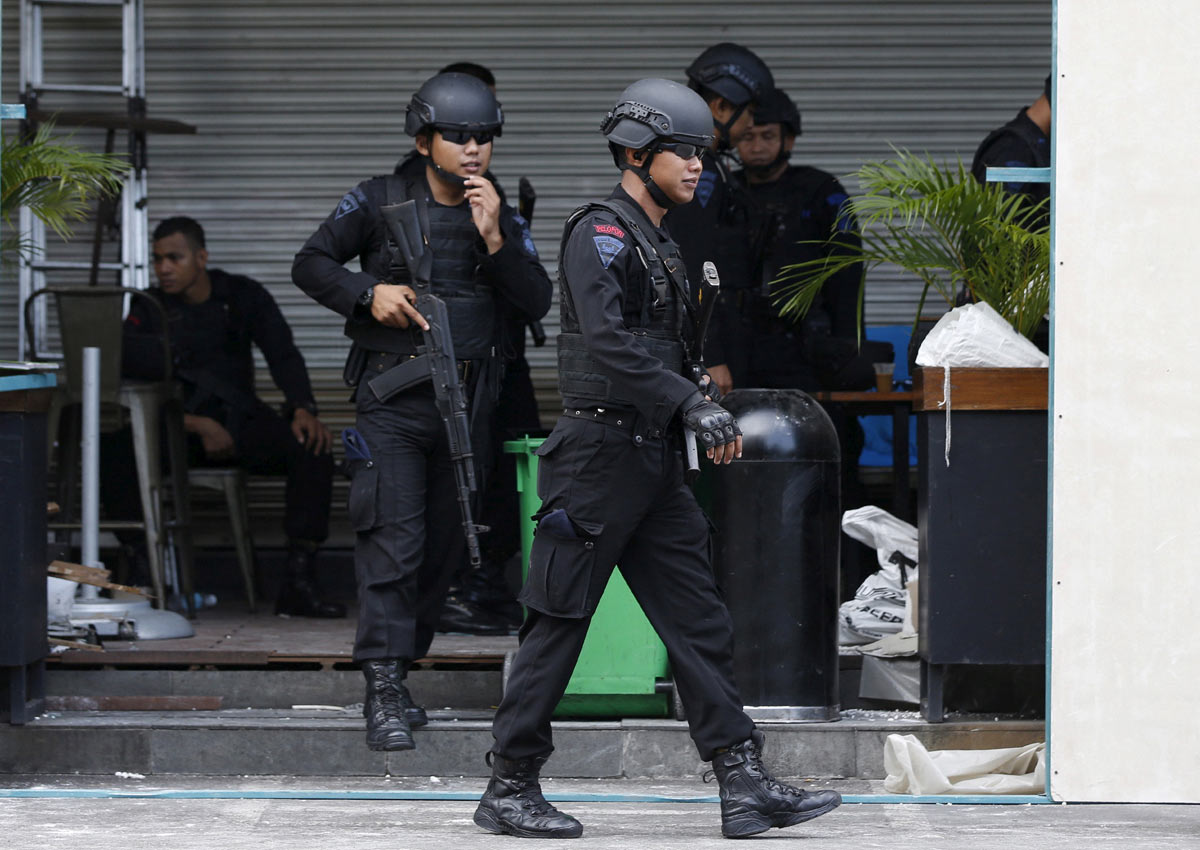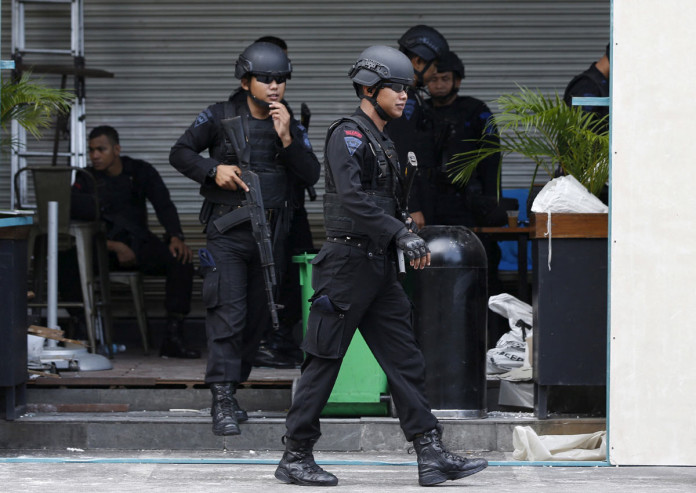Dian Yulia Novi was not known to be religious growing up in Cirebon, West Java. She started wearing the hijab only a few years ago, after she left her home town to work in Taiwan and Singapore as a maid.
Last Tuesday, the 27-year-old appeared on live television in a black burqa, revealing only her eyes, as she recounted how she came to be part of a terrorist cell, which put her on a suicide-bombing mission.
When asked if she feared God’s wrath for being part of an attack that could kill on a massive scale, she said no because she was doing it “for the sake of Allah”.
The emergence of women who are willing to give up their lives to carry out suicide bombings has raised the stakes in the country’s war on terror, as counter-terrorism efforts will now have to consider female combatants as well.
Dian and Arida Putri Maharani, 25, were arrested last weekend after police foiled a plot to bomb the Istana Merdeka presidential palace in Jakarta last Sunday.
Read Also: Jakarta terror suspect worked as maid in Singapore
It also marks a shift in strategy by Indonesian militants, who are now recruiting women to mount attacks instead of men, said national police chief Tito Karnavian.
He confirmed the suspects had planned to use a “rice-cooker” bomb, and this was to be detonated by a woman, referring to Dian.
National police spokesman Inspector-General Boy Rafli Amar said women blend in more easily and appear less suspicious.
“That is why terror groups are using them,” he added yesterday.
Dian’s alleged recruiter Tutin Sugiarti, a 37-year-old housewife from Tasikmalaya, West Java, and a fourth woman terror suspect, Ika Puspitasari, were picked up on Thursday, as the dragnet against the new terrorist cell based in Solo, Central Java, continues to widen.
The cell was set up by an Indonesian militant named Bahrun Naim, who is in the Middle East fighting alongside the Islamic State in Iraq and Syria (ISIS) militant group.
So far, at least 10 members of the group, mostly men, have been nabbed by police commandos from the counter-terrorism unit Detachment 88 (Densus 88), across Java over the last one week.
Read Also: IS shifts focus to female suicide bombers
General Tito recalled the assassination of former Indian prime minister Rajiv Gandhi in 1991, as one of the more high-profile hits carried out by a woman suicide bomber, while such attacks are increasingly prevalent in Afghanistan, Iraq and Syria.
But Dian and Arida – who are both married to Muhammad Nur Solikin, the 26-year-old leader of the Solo cell – are the first Indonesian women known to be tasked with suicide bombings. There have been no reports of other women in South-east Asia doing the same.
Indonesian Defence University researcher Idelia Fitriana said Indonesian women historically become involved in terrorism through marriage, or family connections, and usually take on passive roles.
“Men are usually the jihadists because they are told if they martyr themselves, they will be in paradise with 72 beautiful virgins as their wives,” she added. “That’s the reward they believe they will receive if they commit a suicide bombing.”
But Ms Idelia said Dian was probably influenced by her husband to become a suicide bomber.
Religious Affairs Minister Lukman Hakim said such marriages have no place in Islam, adding that a marriage is a holy institution that promotes peace, hope and love.
Read Also: Indonesian terror cells switch tactics with women recruits
Investigations to establish the specific roles the four women played in the cell are ongoing. Dian is the only one who confessed to being a suicide bomber, adding that she was self-radicalised.
She said in the TV interview that it started when she looked up jihadists on social media and read about them online in 2014 – the year she was working in Singapore.
ISIS is known to have used social media to proselytise its cause and encourage sympathisers, including women to join it, said experts.
National Counter-terrorism Agency, or BNPT, recently set up a unit to counter radicalisation campaigns online but it is mainly targeted at children and young people in Indonesia, rather than women.
Jakarta-based Institute for Policy Analysis of Conflict director Sidney Jones said online chatter indicates that some women admire other women who are more active in terrorist movements overseas.
“They think it is more prestigious, more honourable, more satisfying if they become a mujahidah,” Ms Jones told The Jakarta Post, using the term for female militants.
Dr Fitri Bintang Timur, who recently completed a study on women in peacekeeping operations at Britain’s Cranfield University, noted that some women decided to bear arms because they too could be disgruntled with the government. But she felt Dian may have been brainwashed.
“I think she believes that what she is doing is good even though it will harm others,” added Dr Fitri.
tkchan@sph.com.sg

This article was first published on December 18, 2016.
Get a copy of The Straits Times or go to straitstimes.com for more stories.






